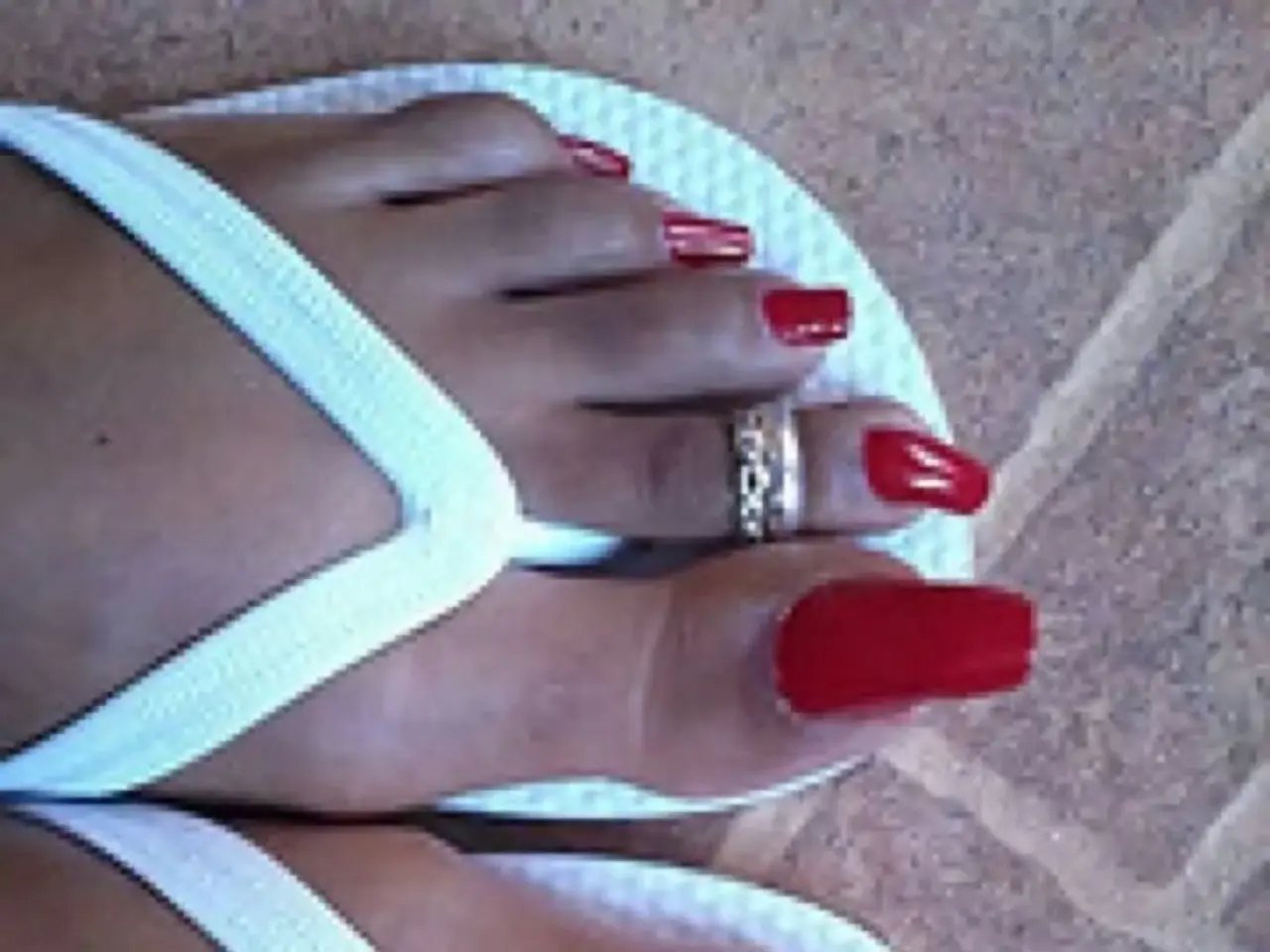treats issues related to foot health in individuals with dementia
Foot problems are a common concern for individuals living with dementia. A study conducted by researchers from Universidade da Coruña has shed light on how Alzheimer's disease affects the health of older people's feet [1].
Soaking feet in warm water with a mild soap helps in cleaning and promoting circulation, which is crucial for maintaining foot health [2]. Encouraging simple exercises like ankle rotations and toe stretches also aids in improving blood circulation and maintaining muscle strength [3].
Regular foot inspection is essential to spot red spots, sores, or skin breakdown early, as dementia patients may not communicate discomfort effectively [1]. Moisturizing the feet daily helps address dry skin and prevents microcracks that can lead to infections like cellulitis [1]. Ensuring properly fitting shoes that do not apply harmful pressure is critical, as neuropathy reduces foot sensation, making shoes that are too tight or too small potentially harmful [1].
When it comes to footwear, opt for shoes that are comfortable, provide proper support, and have a non-slip sole. Inappropriate footwear can exacerbate foot problems by causing tight shoes, leading to ingrown toenails, ulcers, and worsening balance issues [4].
Ulcers and sores on the feet can be slow to heal and are caused by limited sensation, improper footwear, and decreased blood flow [5]. Trimming toenails straight across reduces the risk of infections and discomfort [6]. Early detection enables timely intervention and prevents complications [7].
When sitting, elevate the feet slightly to reduce swelling and aid in fluid drainage, alleviating discomfort [8]. A podiatrist can address specific issues like ingrown toenails, ulcers, and recommend suitable footwear [9].
The study found that only about 30.14% of the participants were wearing shoes that actually fit right in terms of width and size for their feet [10]. This highlights the importance of proper footwear in managing foot problems in dementia patients.
The study also found a clear link between the size of the shoes and the shape of the foot, and when they don't match up, it can lead to foot problems for people with AD [1]. In addition, poor foot care due to memory loss and cognitive decline can increase the risk of infections and sores [11].
Balance and gait issues are caused by cognitive decline affecting coordination and muscle weakness [12]. Dementia patients often encounter various foot problems such as swelling and edema, ulcers and sores, ingrown toenails, and balance and gait issues [13].
A multidisciplinary approach involving neurologists, podiatrists, caregivers, and physical therapists is essential to optimize foot health, mobility, and fall prevention [14]. Supporting balance and gait through exercise and walking aids helps reduce foot-related complications and improves overall safety [1][2][4][5].
In summary, early detection through routine foot checks, good foot hygiene, appropriate footwear, and professional podiatric care are key best practices to manage common foot problems in dementia patients. Regularly applying a gentle moisturizer keeps the skin on the feet hydrated and reduces the risk of cracks and sores [1]. Encouraging gentle foot exercises or walking programs, as approved by healthcare providers, also plays a significant role in maintaining mobility and balance [4].
- Dementia patients, particularly those suffering from Alzheimer's disease, are prone to chronic-diseases such as chronic-kidney-disease due to the aging process [1].
- Incorporating mental-health measures into general health-and-wellness practices, like regular fitness-and-exercise routines and CBD supplements, may potentially help manage some symptoms associated with dementia and aging [15].
- Science continues to explore various medical-conditions associated with dementia, including the role of chronic-kidney-disease in cognitive decline [16].
- Proper foot care is crucial in managing foot problems associated with dementia, as improper footwear, poor foot hygiene, and limited foot inspections can lead to complications like ulcers, sores, and infections [1].
- Discussing footwear choices with a healthcare provider or a podiatrist is important, as they can recommend suitable footwear and provide guidance to prevent foot problems, such as ingrown toenails and balance issues [9].




